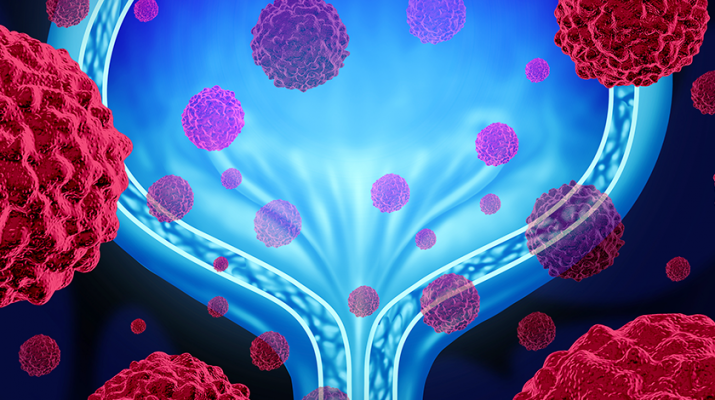Northeast U.S. has the highest incidence of bladder cancer in the country
By Joseph Jacob, MD

Bladder cancer is the ninth most common cancer in the world and unfortunately accounts for 17,000 deaths per year in the United States. The median age of diagnosis for men and women is approximately 70. Interestingly, the northeast United States has the highest incidence of bladder cancer in the country. The most common risk factor for developing bladder cancer is smoking cigarettes and tobacco use. Other risk factors include mainly occupational exposures to carcinogens seen in metal workers, painters, rubber industry workers, hairdressers and various other manufacturing jobs with exposure to industrial chemicals.
Diagnosis
Most commonly, patients present with blood in the urine. Patients with hematuria should be referred immediately to a urologist who will perform cystoscopy and usually a contrasted CT scan with delayed images to evaluate the renal pelvis and ureters. If a tumor is identified, a urologist will use a cystoscope with instruments to resect this tumor through the urethra. This resection is diagnostic and can also be therapeutic. The pathologist then will determine if the tumor is invasive or non-invasive.
Treatment
Most bladder cancers are non-invasive and can be treated with chemotherapies or immunotherapies that are instilled in the bladder. Invasive bladder cancers are more likely to metastasize and therefore complete removal of the bladder and pelvic lymph nodes is standard.
Some non-invasive bladder cancers can become invasive if not treated. Therefore, it is vital to offer patients intravesical therapy in order to avoid the need for bladder removal.
Upstate Urology offers all aspects of bladder cancer care, including immediate diagnosis, intravesical therapy and removal of the bladder. It also offers clinical trials to help patients preserve their bladders after failing standard intravesical therapies.

